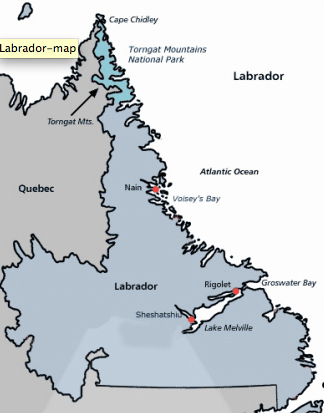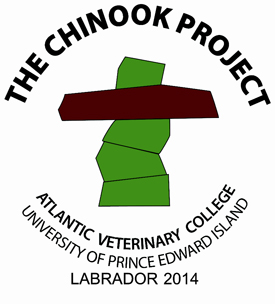From the Editor: On the Radar
Citizen Scientist Participation Requested
On the Trail of the Far Fur Country
Dealing with a Runaway or Breakaway Team of Inuit Dogs
The Chinook Project Returns to Labrador
Website Explores Indigenous People of the Russian Arctic
Book Review: Harnessed to the Pole: Sledge Dogs in Service to American Explorers of the Arctic, 1853-1909
IMHO: What’s Enough?
Navigating This Site
Index of articles by subject
Index of back issues by volume number
Search The Fan Hitch
Articles to download and print
Ordering Ken MacRury's Thesis
Our comprehensive list of resources
Defining the Inuit Dog
Talk to The Fan Hitch
The Fan Hitch home page
Editor: Sue Hamilton
Webmaster: Mark Hamilton
The Fan Hitch, Journal
of the Inuit Sled Dog, is published four
times a year. It is available at no cost
online at: https://thefanhitch.org.
The Fan Hitch welcomes your letters, stories, comments and suggestions. The editorial staff reserves the right to edit submissions used for publication.
Contents of The Fan Hitch are protected by international copyright laws. No photo, drawing or text may be reproduced in any form without written consent. Webmasters please note: written consent is necessary before linking this site to yours! Please forward requests to Sue Hamilton, 55 Town Line Rd., Harwinton, Connecticut 06791, USA or mail@thefanhitch.org.
This site is dedicated to the Inuit Dog as well as related Inuit culture and traditions. It is also home to The Fan Hitch, Journal of the Inuit Sled Dog.
The Fan Hitch welcomes your letters, stories, comments and suggestions. The editorial staff reserves the right to edit submissions used for publication.
Contents of The Fan Hitch are protected by international copyright laws. No photo, drawing or text may be reproduced in any form without written consent. Webmasters please note: written consent is necessary before linking this site to yours! Please forward requests to Sue Hamilton, 55 Town Line Rd., Harwinton, Connecticut 06791, USA or mail@thefanhitch.org.
This site is dedicated to the Inuit Dog as well as related Inuit culture and traditions. It is also home to The Fan Hitch, Journal of the Inuit Sled Dog.
Senior vet student Chris McLaughlin (l), and Dr. Marti Hopson (r)
prepping a dog for surgery in Makkovik, Labrador in 2011.
Courtesy of the Chinook Project
The Chinook Project Returns to Labrador
by Dr. Lisa Miller, coordinator
2014 is certain to be an exciting year for the Chinook Project as we will be taking two groups of veterinarians, fourth year veterinary students, vaccines and other veterinary supplies to three locations in Labrador. This is our 9th year of providing veterinary care to northern dogs.
The Chinook Project at the Atlantic Veterinary College (AVC) of the University of Prince Edward Island (UPEI), located on Prince Edward Island, Canada has been able to continue this important work thanks to the generous support from the Government of Newfoundland and Labrador, Zoetis Canada, Iams-Eukanuba, Boehringer-Ingelheim, the Rathylyn Foundation, Ann McCain Evans, Air Labrador and many other donors and supporters.

Map source Newfoundland and Labrador Heritage. All
communities removed except for Nain, Rigolet & Sheshiatshu.
In late June, the first team will return to Nain, where we had visited in 2012. This is the northernmost settlement in Labrador, population approximately 1200. The Nain Animal Wellness Clinic organization will host the project and provide accommodations and mobile clinic facilities. From Nain, the team will travel to Sheshatshiu. Sheshatshiu is an Innu First Nations community. This will be our first visit to Sheshatshiu and the Chinook Project is looking forward to providing veterinary care to the many dogs there. The second team will meet up and work with the first in Sheshatshiu. Next, Team 2 will travel to Rigolet. Rigolet is a remote, coastal Inuit community, population 310, located on Hamilton Inlet. This will be our first visit to Rigolet.
The communities are looking forward to the Chinook Project’s arrival. Rabies, distemper and parasites continue to affect the dog population as well as pose a public health issue. Each locale has arranged for 50 to 100+ dogs to visit our temporary clinics for veterinary care. Our teams will be busy!
We will report on the Labrador clinics in the September 2014 issue of The Fan Hitch.
Taking two teams to three sites this year is administratively, physically and financially demanding. Your financial support is always appreciated and charitable receipts will be issued.
 |
The Chinook
Project c/o Dr. Alice Crook Coordinator, Sir James Dunn Animal Welfare Centre Atlantic Veterinary College University of Prince Edward Island 550 University Avenue, Charlottetown, PEI C1A 4P3 |